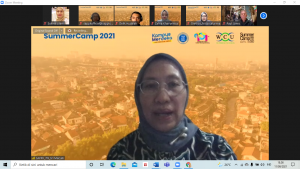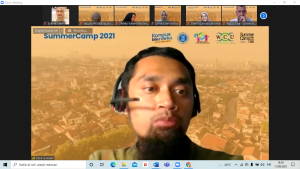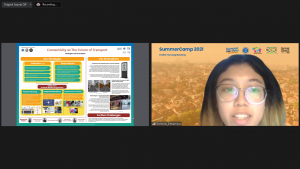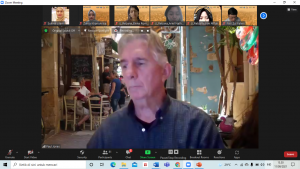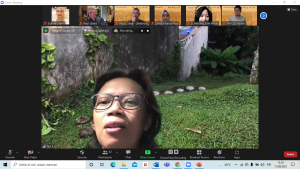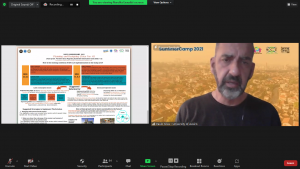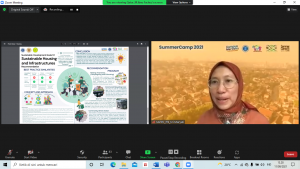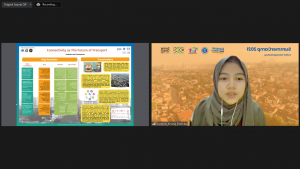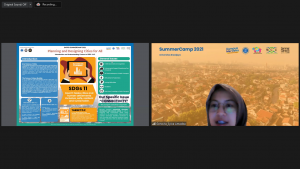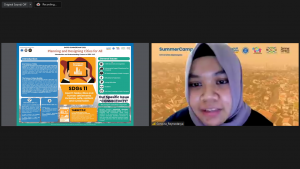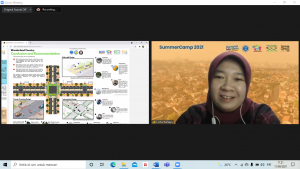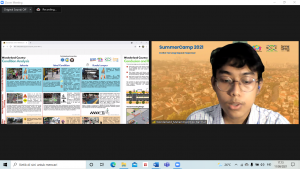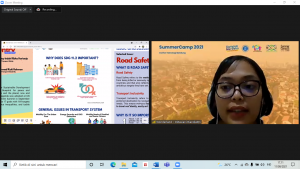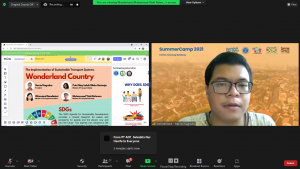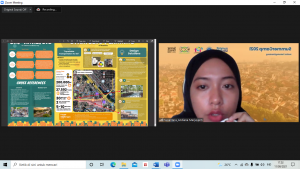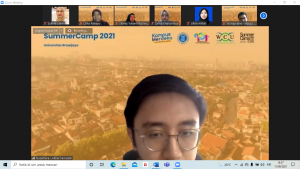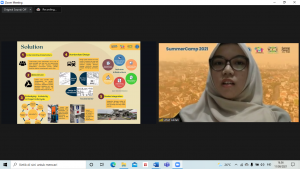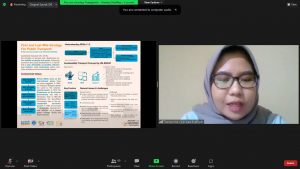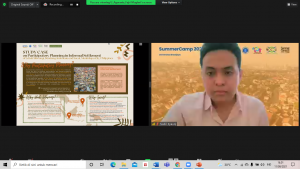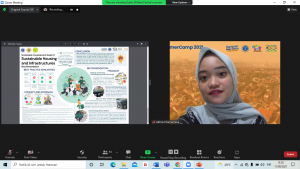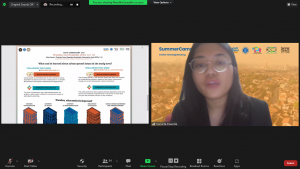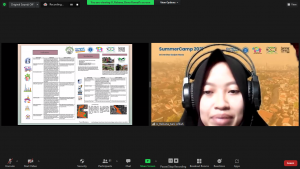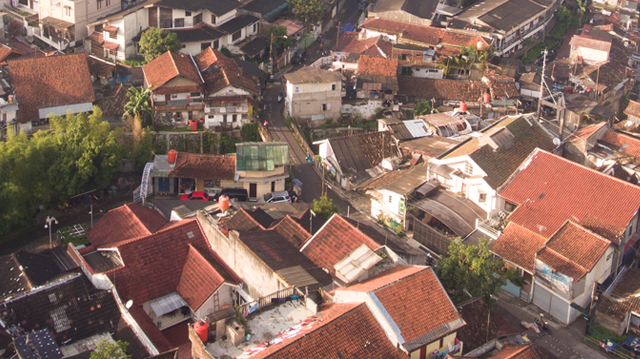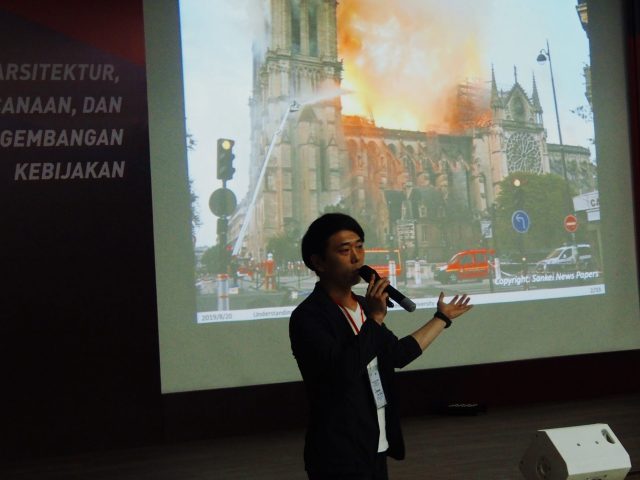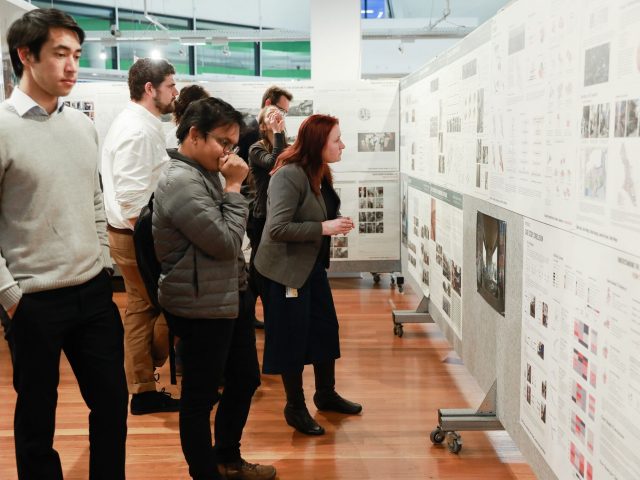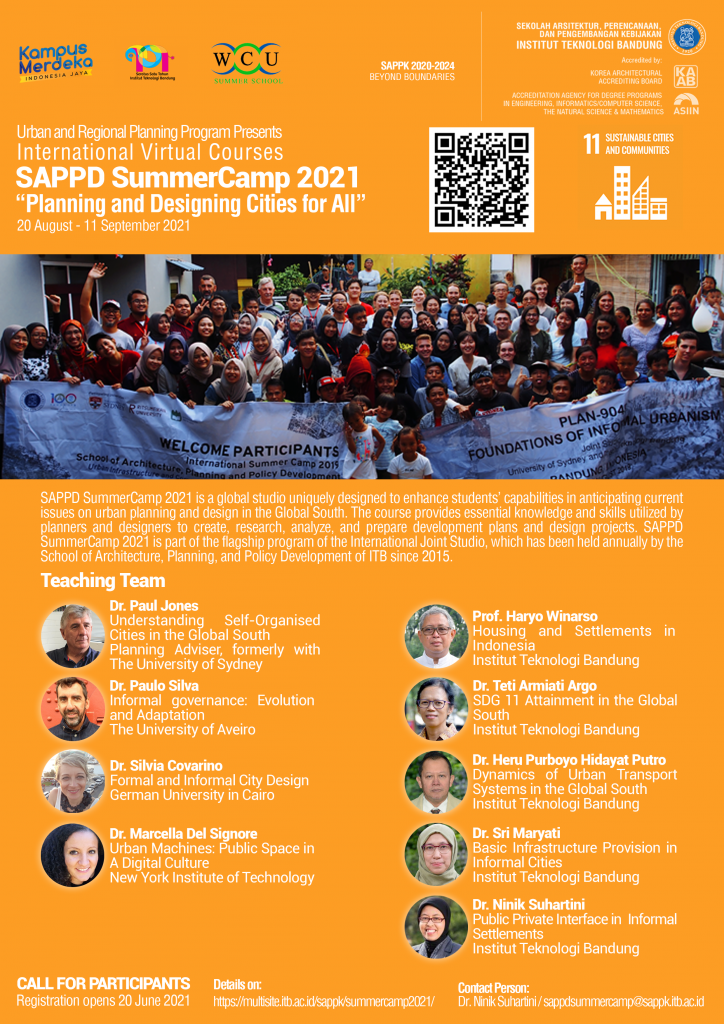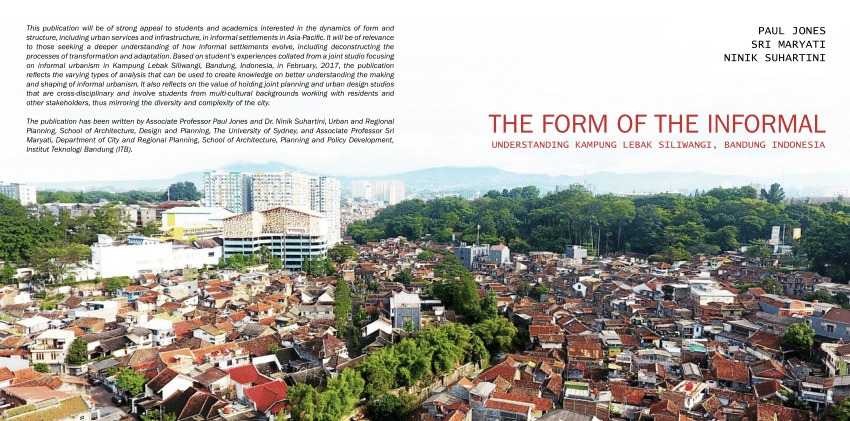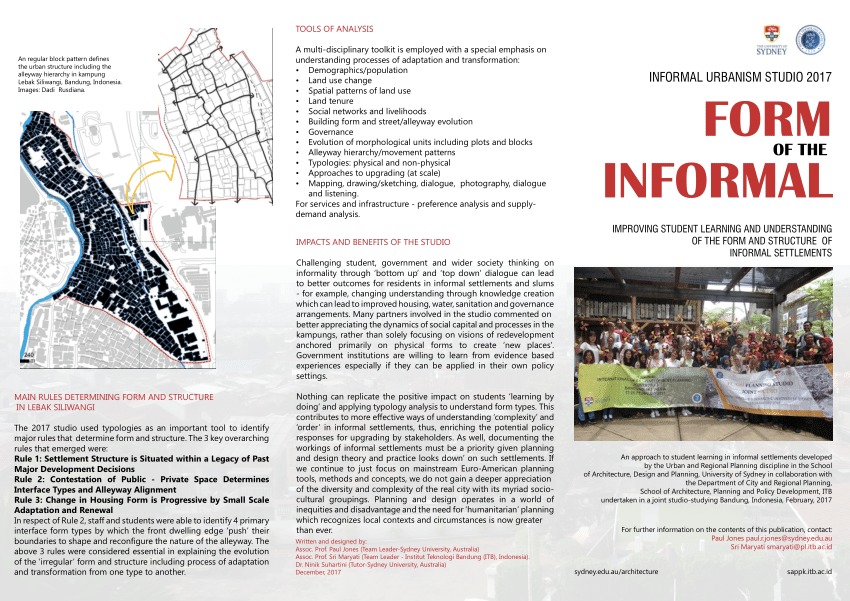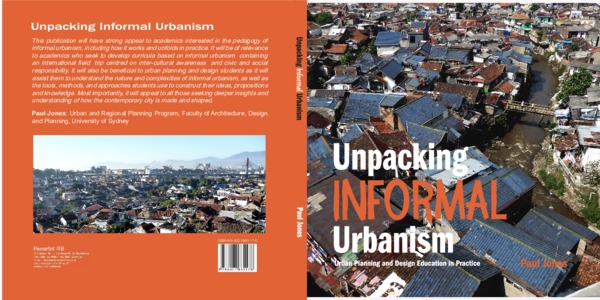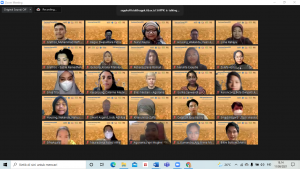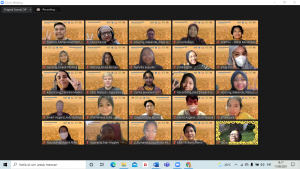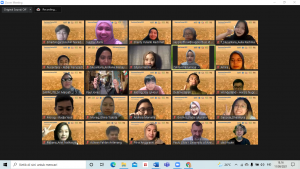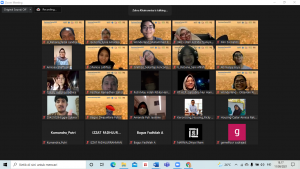Publications:
Jones, P. (2015). Housing Resilience and the Informal City. Journal of Regional and City Planning, 28 (2), pp. 129-139.
Jones, P. (2016). Unpacking Informal Urbanism – Planning and Desgn Education in Practice. ITB University Press, Penerbit, Bandung, Indonesia.
Jones, P. (2016). The Emergence of Pacific Urban Villages – Urbanization Trends in the Pacific Islands. Pacific Studies Series. Asia Development Bank, Manila. E web access.
Jones, P. (2017). Formalizing the Informal: Understanding the Position of Informal Settlements and Slums in Sustainable Urbanization Policies and Strategies in Bandung, Indonesia. Journal of Sustainability 2017, 9, 1436.
Jones, P. (2019). The Shaping of Form and Structure in Informal Settlements: A Case Study of Order and Rules in Lebak Siliwangi, Bandung, Indonesia. Journal of Regional and City Planning, 30 (1), pp. 43-61.
Jones, P., Maryati, S., and Suhartini, N (2018). The Form of the Informal, ITB Press, Bandung.
Maryati, S. (ed), (2018). Understanding the Informal City, ITB Press, Bandung.
Silva, P. (2020), Not So Much about Informality: Emergent Challenges for Urban Planning and Design Education. Sustainability, 12, 8450. https://www.mdpi.com/2071-1050/12/20/8450/pdf
Suhartini, N., Jones, P. (2020), Better Understanding Self-Organizing Cities: A Typology of Order and Rules in Informal Settlements, Journal of Regional and City Planning, Vol. 31 No.3, p. 237-263, dec. 2020. ISSN 2502-6429, doi:10.5614/jpwk.2020.31.3.2.
